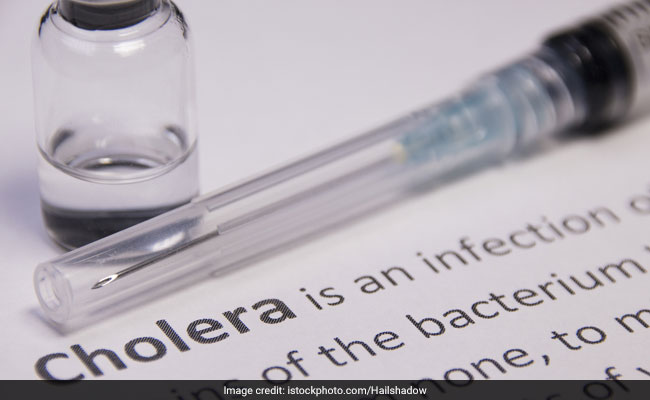Kerala floods: As Keralites are facing some massive floods, we take a look into the various diseases that they are prone to at this point of time. There is an increased risk of infection through water-borne and vector-borne diseases during floods.

Kerala floods: Diseases like cholera and diarrhoea are common during floods
HIGHLIGHTS
- Incidence of waterborne diseases is high during floods
- People are prone to infections and fever during floods
- Cholera, diarrhoea and Hepatitis A are common diseases caused by floods
The floods continue to devastate Kerela. Torrential rains, overflowing rivers and landslides have resulted in the death of 79 people in the state. Kerela has always been battered by rains but this monsoon the rains were exceptionally severe. Due to heavy rains, operations at the Cochin International Airport have been suspended till 2 pm on Saturday due to flooding in and around the airport. A red alert has been issued in all the 14 districts of the state. The most common natural disaster, flooding poses significant health risks to population. Flooding is often associated with an increased risk of infections. The major risk factor for outbreaks associated with flooding is the contamination of drinking-water facilities. There is an increased risk of infection of water-borne and vector-borne diseases contracted through direct contact with polluted waters, such as wound infections, dermatitis, cholera, malaria, dengue fever, conjunctivitis, and other ear, nose and throat infections.
Also read: Monsoon Diseases: This Monsoon, Keep Cholera At Bay: Here's How
Flooding can lead to some common diseases which are:
Cholera: Another most common and deadly bacterial disease that spreads during floods is cholera. This disease is caused by contaminated food, water and also poor hygienic conditions. Common symptoms of cholera are severe diarrhea and vomiting which causes immediate water loss and muscle cramps. Cholera requires immediate treatment because the disease can cause death within hours.

Cholera can cause vomiting
Photo Credit: iStock
Also read: 10 Things To Know About Cholera
Typhoid: Typhoid is another waterborne bacterial infection caused by bacteria called Salmonella. This disease is caused by contaminated food or drinking water. Symptoms of the diseases are prolonged high fever, severe abdomen pain, headache; vomits are common symptoms of this disease. The worst part is that the infection of this disease can remain in the gall bladder of the patient even after he/she is cured.
Diarrhoea: Diarrhoea is one of the most common waterborne diseases that mostly affects children under the age of 5. The infection of diarrhea spreads when one eats contaminated food and impure water. Some of the symptoms of diarrhea include dehydration, severe dizziness, loss of consciousness, pale skin and bloody stool, little or no urination. The disease can last up to 2 weeks by leaving the person dehydrated and if kept untreated the infected person can lose his/her life as well.

Diarrhoea can cause dizziness
Photo Credit: iStock
Hepatitis A: The other most common type of waterborne diseases is Hepatitis A and it is caused by Hepatitis A virus, which affects mainly the liver. It is normally spread by the fecal-oral route, by direct contact with the infected person or by ingestion of the contaminated food or water. Some of the symptoms that you can find in the infected person are nausea, vomiting, and high fever.
Also read: Boost Immunity During Monsoons With These 7 Fruits
Some preventive measures you should take to avoid water-borne diseases:
Clean water is a prerequisite for reducing the spread of water-borne diseases. The prevalence of water-borne diseases may be greatly reduced by providing people with safe, sanitary disposal of feces and provision of clean drinking water. One can prevent water-borne diseases by drinking clean water, better sanitation, and by better hand washing.
DoctorNDTV is the one stop site for all your health needs providing the most credible health information, health news and tips with expert advice on healthy living, diet plans, informative videos etc. You can get the most relevant and accurate info you need about health problems like diabetes, cancer, pregnancy, HIV and AIDS, weight loss and many other lifestyle diseases. We have a panel of over 350 experts who help us develop content by giving their valuable inputs and bringing to us the latest in the world of healthcare.















